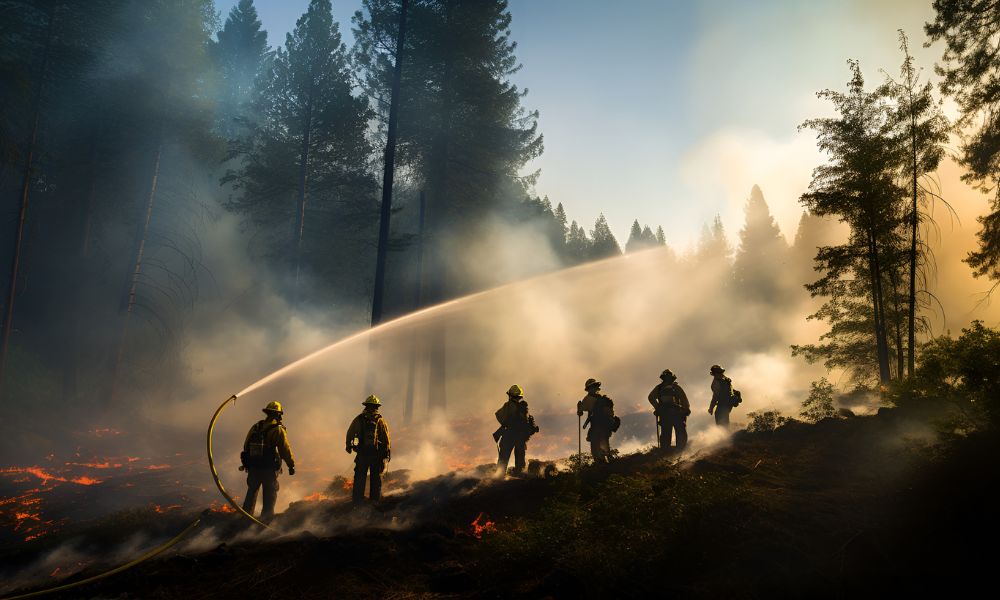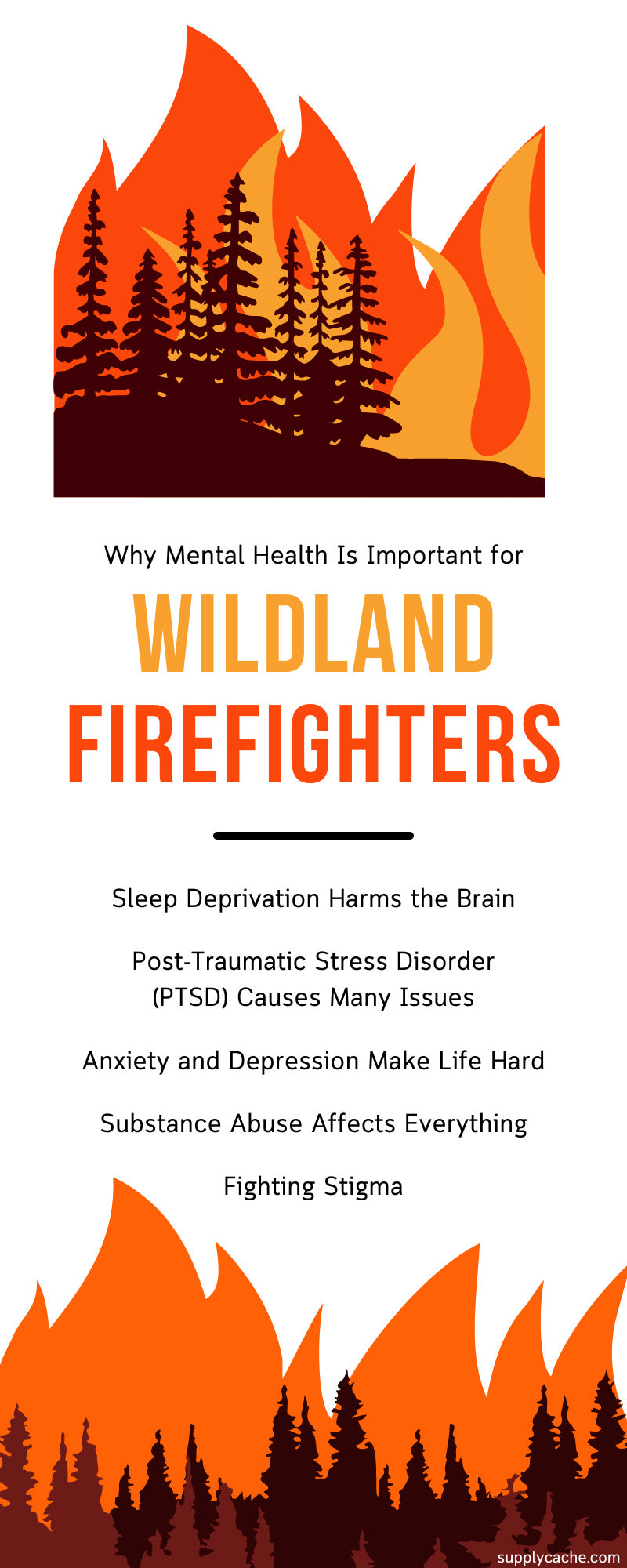
Fighting wildfires is a stressful occupation, to say the least. It can take a toll on your body as you risk burning, asphyxiation, and too many other injuries to name. While these physical aspects are important, consider the tremendous influence that all that stress can have on a person’s mental well-being. Take a moment to make sure you’re not feeling overwhelmed by your duties.
Looking out for your mental health also ensures you remain clear-headed and ready to battle the flames and survive. But that’s not all. Here’s why mental health is important for wildland firefighters and some common signs that there might be an issue.
Sleep Deprivation Harms the Brain
We don’t give enough credit or time to sleep. In fact, many people often praise each other for skipping sleep, as it shows that we’re working efficiently and dedicating ourselves to our work. But the truth is that sleeplessness or avoiding sleep causes far more damage to mental health and work in general.
Firefighters must be ready at a moment’s notice, jumping out of a deep sleep to respond to an alarm. Some eventually become fixated on being ready, never allowing themselves to relax enough and sleep, even when off-duty. The problem is that without sleep, the brain breaks down, causing poor decision-making, anxiety, depression, and even dementia. That leads to problems in the field and the potential for getting oneself or someone else hurt. While we praise sleeplessness, firefighters should aim to avoid it.
Post-Traumatic Stress Disorder (PTSD) Causes Many Issues
When we think of PTSD, we often imagine the military and soldiers who have seen battle. However, PTSD can occur wherever a human being experiences an emotionally troubling and traumatic event. Wildfire fighters see plenty of death, damage, and destruction, and the potential to see a fellow firefighter, or anyone else, lose their life is very real.
PTSD can lead to the firefighter experiencing insomnia, flashbacks, bad dreams, depression, and emotional numbness. These can affect both their life and their job performance and lead to greater issues, on the job and off.
Anxiety and Depression Make Life Hard
The traumatic events and ongoing stress that accompany firefighting can lead to anxiety and depression—which causes a real emotional roller coaster. Naturally, there will always be some level of anxiety and stress involved with fighting fires; however, carrying that anxiety around even when off the clock is debilitating. A stretched rubber band will eventually snap, and that same rule applies to humans who remain in a state of extreme anxiety for too long. Learning to relax during downtime can take the edge off, though it’s not always easy to do so.
Depression, on the other hand, can lead to sadness, a lack of energy and appetite, irritability, withdrawal from society, and no interest in one’s favorite things. Sadly, both can lead to suicidal ideation or the act itself. Anxiety and depression affect everyone, but if either seems uncontrollable, consider seeking the help of a therapist to aid in combatting either condition.
Substance Abuse Affects Everything
All the above issues can lead to a person seeking out ways to help them sleep, relax, or numb the pain. Sadly, many firefighters may turn to drugs and alcohol to handle either, leading to addiction and dependency. Having only a drink or two on the weekend isn’t substance abuse. However, abusing drugs or excessively drinking off- or, even worse, on-duty can lead to bad calls, impaired driving and equipment operation, and other physical and mental challenges.
Of course, some firefighters need medications prescribed by doctors, but be sure that the side effects and the potential for addiction don’t interfere with the job. The biggest trouble with drug and alcohol abuse is that they create a cycle. They often cause an individual to sink deeper into the same mental health issues they’re trying to mute through substance abuse, and that can lead to worse problems.
Fighting Stigma
One mental health issue that everyone needs to overcome is the idea that there’s something wrong with needing help with your mental health. Some fields have traditionally fostered a macho culture, and firefighting is one of them. The idea that being stressed, anxious, depressed, or otherwise struggling mentally and emotionally is somehow “weak” is ridiculous and undermines the seriousness of these conditions.
People often rely on the help of their fellow human beings when things get tough, and firefighters need to be there for each other. The common culture of the squad should be one of vigilance and support, with no firefighters left behind in the field or the facility. Provide educational opportunities about seeking help when one needs it and raise awareness about the signs that someone is struggling.
Bigger and Better Mental Health!
You should always consult with a mental health professional about a course of treatment for serious mental health issues. However, there are things you can do to feel better about yourself and your life before things become too dire. Regular exercise is an effective way to combat depression and anxiety, so work out at least two hours a week, whether that involves running, lifting weights, or doing yoga. Even if a traditional form of exercise doesn’t appeal to you, a daily stroll through nature or any pleasant spot can do wonders to change your attitude.
Socializing is always good, and it allows you to talk through your feelings with a friend or family member. And even learning a new skill can do wonders to distract a firefighter from the grueling grind of the job. Keep it fun and light, and if it involves meeting and interacting with others, all the better.
Those are a few reasons why mental health is important for wildland firefighters, as well as symptoms to watch out for. As fire equipment suppliers, we believe wildfire fighters need to have the best tools to do their jobs safely and well. That includes tools for mental health. We may not be able to provide tools like that in our general catalog, but hopefully, this article will help someone take the steps to improve their mental health!

